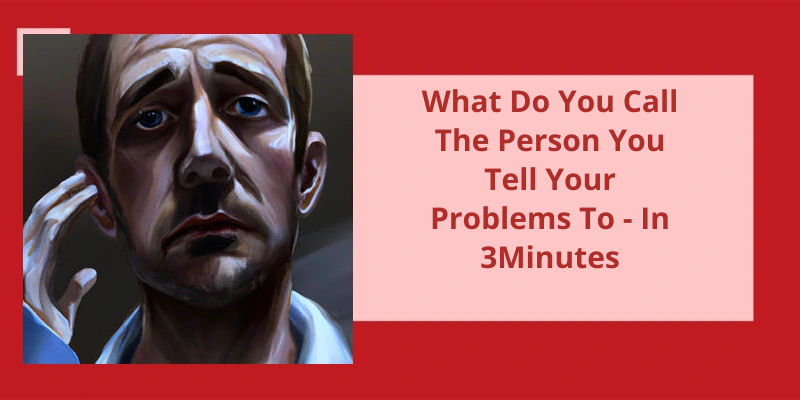It’s normal to crave the company of someone you love, but sometimes too much of a good thing can become suffocating. It isn’t uncommon to feel drained when you spend too much time with someone, even if you enjoy their presence. This may be the case for those in a relationship who see their partner every day. As individuals, we all require our own personal space and time to recharge our batteries. It’s essential to find a healthy balance in any relationship where both parties can honor each other's needs for alone time, so as not to feel overwhelmed. Therefore, it’s understandable for someone to feel fatigued and want to break from the monotony of constant companionship.
Is It Too Much to See Your Boyfriend Everyday?
When youre with your significant other every single day, it can be easy to fall into a routine. You might start taking each other for granted, neglecting to appreciate the little things that make your relationship special. Distance gives you the chance to miss each other and appreciate the time you spend together.
It’s also important to have time to yourself, even when youre in a relationship. Spending time alone gives you the chance to pursue your own interests and hobbies, and to reflect on your own thoughts and feelings. This can help you grow as an individual, which in turn will make you a better partner.
Finally, seeing your boyfriend every day can heighten the intensity of your emotions, both positive and negative. When things are going well, you may feel like youre on top of the world. But when things go wrong, the intensity of your emotions can be overwhelming and difficult to manage. Taking a step back can give you the space you need to process your feelings and learn how to communicate effectively with your partner.
All that being said, theres no magic formula for how much time you should spend with your partner. Every relationship is different, and what works for one couple may not work for another. The key is to communicate openly and honestly with your partner about your needs and boundaries, and to be willing to compromise and adjust as needed.
Ultimately, the most important thing is to listen to yourself, and to trust your instincts. If you feel like youre spending too much time with your boyfriend, it’s probably time to take a step back and give each other some space. At the end of the day, a healthy relationship is about finding the right balance between intimacy and independence, and learning how to navigate the challenges of life together.
The Importance of Having a Life Outside of Your Relationship
It’s crucial to maintain a life outside of your romantic relationship for personal growth, fulfillment, and a healthy balance. Focusing solely on your relationship can cause feelings of suffocation, codependency, and may ultimately lead to the demise of the relationship. Pursuing individual interests, hobbies, and friendships not only strengthens your sense of identity but also provides new dynamic experiences to bring to the relationship.
Finding yourself feeling tired of a relationship can be difficult, but there are ways to reignite the spark and bring back the excitement you once felt. In addition to flirting and small gestures of affection, exploring new experiences together can be a great way to reconnect and discover new things about each other. Here are some further tips on what to do if you’re feeling tired of your relationship.
What Should I Do if I Am Tired of a Relationship?
Sometimes feeling tired of a relationship can stem from boredom. Have you and your partner fallen into a routine that’s become monotonous? If so, it’s important to shake things up a bit. Try new activities or hobbies together. Explore a new city or town. Take a cooking class or go on a hike. By doing something different, you may rediscover what made you fall in love in the first place.
#4 Communicate. Communication is vital in any relationship, especially if youre feeling tired of it. Talk to your partner about how youre feeling. Be honest and open about whats bothering you. Perhaps theres something they can do to help reignite the spark. Or maybe you both need to work on certain aspects of the relationship. Whatever the case may be, it’s important to have a dialogue and work together.
#5 Take a break. Sometimes, taking a break can be beneficial. This doesn’t mean ending the relationship, but rather taking some time apart to reflect and recharge. Go on a solo trip or spend time with friends and family. Use this time to evaluate what you want and need from the relationship. Remember, taking a break doesn’t have to be permanent, but it may help you gain some perspective.
#6 Seek professional help. If youve tried everything and are still feeling tired of your relationship, it may be time to seek professional help. Consider going to couples counseling or therapy to work through any underlying issues. A therapist can provide helpful insights and tools to improve communication and strengthen your relationship. Remember, seeking help isnt a sign of weakness, but rather a strong and proactive step towards improving your life and relationships.
It’s important to remember that every relationship is unique and comes with it’s own set of challenges. In this case, having different schedules or commitments can make it difficult to spend as much time with your boyfriend as you’d like. But there are ways to work through this without putting undue stress on your relationship.
Is It Normal to Want to See Your Boyfriend All the Time?
First and foremost, it’s important to recognize that everyone has different needs when it comes to how much time they want to spend with their partner. For some people, seeing their significant other every day is a must, while others are perfectly happy with a more low-key approach. Theres no right or wrong answer here, as long as both parties are on the same page.
However, if youre finding that youre constantly wanting to see your boyfriend, it’s worth taking a step back and asking yourself why that is. Is it because youre truly in love and cant get enough of him, or is it because youre feeling anxious or insecure about the relationship? If it’s the latter, it might be worth exploring those feelings with a therapist or trusted friend.
Assuming it’s just a matter of wanting to be around your boyfriend more often, the key is to communicate openly and honestly with him about your feelings. Let him know that you enjoy spending time with him and that youd like to see him more often, but don’t pressure him into doing something hes not comfortable with. Remember that he’s a life outside of your relationship, and it’s important to respect that.
One way to compromise might be to find activities that you can do together on a regular basis, whether thats a weekly date night or a shared hobby that you both enjoy. This can help you feel more connected without necessarily needing to spend all your time together.
It’s also important to make sure youre maintaining a healthy balance in your life outside of your relationship. Make time for your friends and family, pursue your own interests and hobbies, and don’t neglect your work or school responsibilities. You might find that having a more well-rounded life outside of your relationship actually makes the time you do spend with your boyfriend even more enjoyable and fulfilling.
Ultimately, it’s up to you and your partner to decide what works best for your relationship. Just remember that healthy relationships are built on trust, communication, and mutual respect. As long as youre both willing to listen to each others needs and make an effort to compromise, theres no reason why you cant find a balance that works for you both.
Exploring the Root Causes of Feeling Anxious or Insecure in a Relationship and How to Address Them
- Fear of abandonment
- Lack of trust
- Prior negative experiences in past relationships
- Low self-esteem or confidence
- Communication issues
- Dependency on the relationship for happiness
- Unresolved personal issues
- Attachment style
- Lack of emotional intimacy
- Different values or goals
Source: Am I being clingy if I want to be with my boyfriend all the …
As relationships evolve, it’s common to experience ups and downs. It’s no surprise that you may feel tired of being around your boyfriend after being together for a long time. However, this doesn’t mean it’s the end of your relationship. In fact, it’s entirely normal for couples to go through periods of fatigue and disinterest while still being madly in love. In the following sections, we’ll explore the reasons why you might be feeling this way and what steps you can take to reignite the flame in your relationship.
Is It Normal to Get Tired of Being Around Your Boyfriend?
It’s not uncommon to feel drained or exhausted from spending too much time with someone, even someone you love. Relationships can be taxing on our emotional and mental energy, particularly if were constantly putting in effort to make them work. Sometimes we need a break, some alone time, or to spend time with other people to recharge our batteries.
It’s important to note that feeling tired of being around your boyfriend doesn’t necessarily mean you don’t love him or care about him anymore. It might just be a sign that you need to take a step back and evaluate what your needs are in the relationship. Maybe you need more space, or maybe you need to communicate more openly about how youre feeling. Whatever the case may be, it’s important to be honest with yourself and your partner about your emotions.
Are there any recurring problems or conflicts that keep coming up? Are you both on the same page about your future together? By taking some time to reflect on your relationship, you might be able to identify any areas that need improvement, and work together to make things better.
Remember that every relationship is unique, and theres no one-size-fits-all solution for dealing with feelings of exhaustion or fatigue. However, it’s important to address these feelings sooner rather than later, before they start to fester and potentially cause bigger problems down the line. By being open, honest, and communicative with your boyfriend, you can work together to maintain a healthy and fulfilling relationship that works for both of you.
While it can be unsettling or disorienting, it’s important to remember that it’s not necessarily a sign that you don’t love your partner anymore. By taking some time to reflect, communicate, and reassess your relationship, you can work together to overcome any hurdles and continue to grow and thrive as a couple.
Ways to Prioritize Self-Care in a Relationship
This article explores some practical ways to prioritize self-care while being in a committed relationship. The focus is on creating healthy boundaries, communication, and finding balance between individual needs and responsibilities to the relationship.
It’s natural to want to spend time with your significant other, but constantly being with them can quickly make your life revolve around them. If you’re struggling with wanting to see your boyfriend every day, there are several steps you can take to maintain a healthy balance in your relationship. By focusing on your own interests, investing in your goals, spending time with loved ones, and setting clear boundaries, you can create a fulfilling life outside of your relationship and reduce dependency on your partner.
How Do I Stop Wanting to See My Boyfriend Everyday?
It’s natural to want to see your boyfriend every day, especially in the beginning stages of a relationship. Theres no denying the rush of emotions that come with falling in love, and wanting to spend as much time as possible with your partner is a big part of that. However, it’s important to recognize when this desire becomes unhealthy and starts to negatively impact other areas of your life.
One way to break out of this pattern is to focus on your own interests. Invest time and energy into the things that make you happy, whether it’s a hobby, a career goal, or pursuing education. This not only gives you a sense of purpose outside of the relationship, but it also helps to maintain your individuality and independence.
Another way to prevent your life from revolving around your boyfriend is to spend time with friends and family. Whether it’s going out for dinner, watching a movie, or simply catching up over coffee, spending quality time with people who care about you can be a great way to distract yourself from the obsession with your partner.
It’s also important to get comfortable being alone. This doesn’t mean isolating yourself, but rather practicing self-care and mindfulness. Take time to read, meditate, or simply enjoy your own company without feeling like you need someone else to fill that void. This can go a long way in helping you build a healthy sense of self-worth and self-love, which in turn can make you a stronger and more confident partner.
Additionally, being open about your needs and boundaries is crucial. Communicate with your boyfriend about your expectations and what you need to feel fulfilled in the relationship. This can help prevent feelings of resentment or disappointment when your partner inevitably falls short of your expectations.
Finally, give your boyfriend some space. While it can be hard to resist the urge to be with your partner constantly, remember that a healthy relationship requires balance and autonomy. Encourage your boyfriend to pursue his own interests and goals, and don’t take it personally if he needs some alone time. Similarly, try to keep feelings of jealousy at bay by trusting in the strength of your relationship and focusing on your own happiness.
Discussing the Potential Underlying Issues That May Be Driving the Desire to See Your Boyfriend Every Day, Such as Anxiety or Low Self-Esteem, and Seeking Professional Help or Therapy.
- Anxiety
- Low self-esteem
- Dependence on partner
- Lack of healthy friendships or hobbies
- Past trauma or abandonment issues
- Attachment style
- Co-dependency
- Communication difficulties
- Unresolved conflicts in the relationship
- Unrealistic expectations of the relationship
- Fear of losing the relationship
- Difficulty being alone
- Fear of missing out on experiences with partner
- Cultural or societal pressure to be in a relationship
- Reliance on partner for emotional fulfillment






